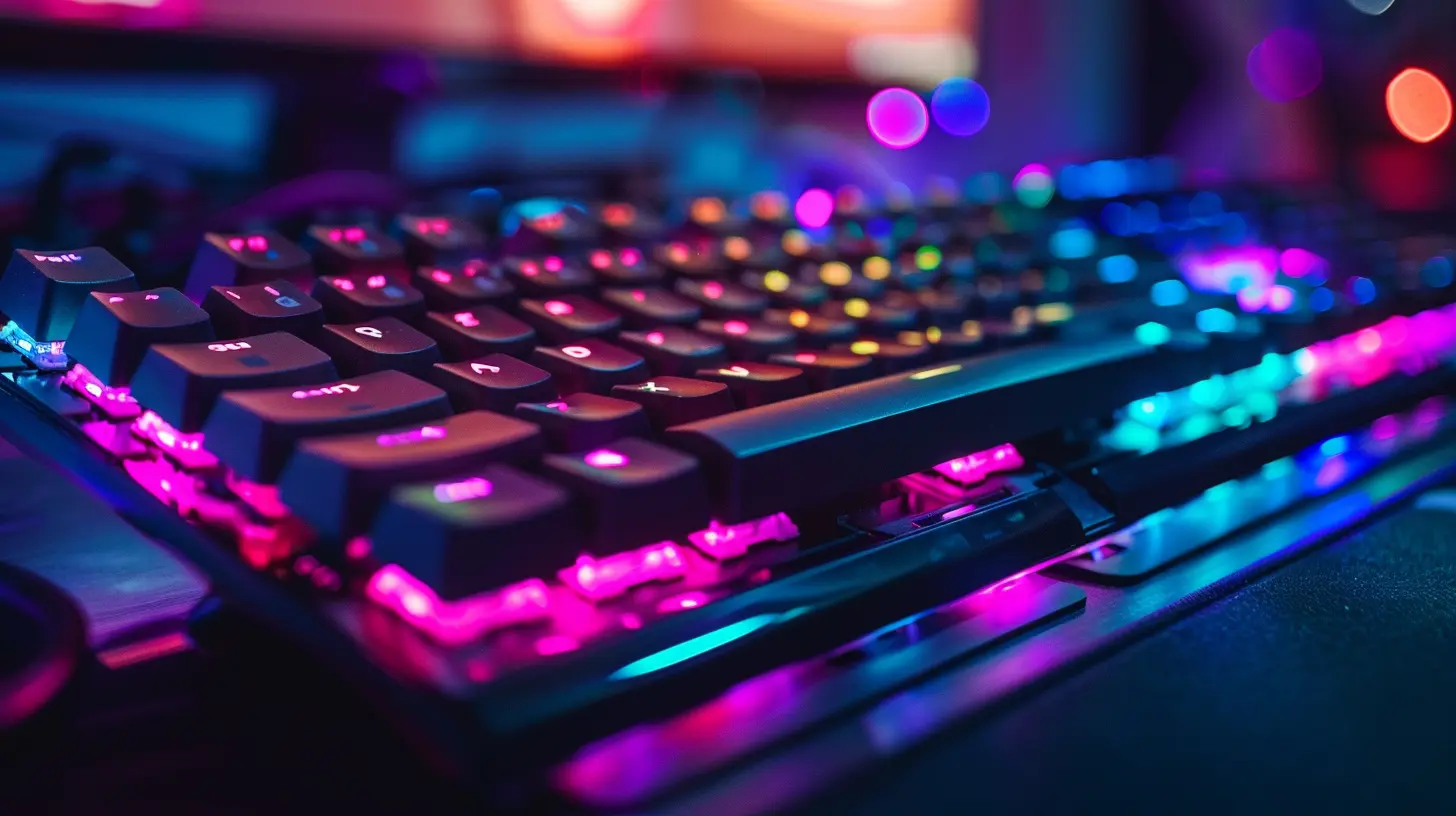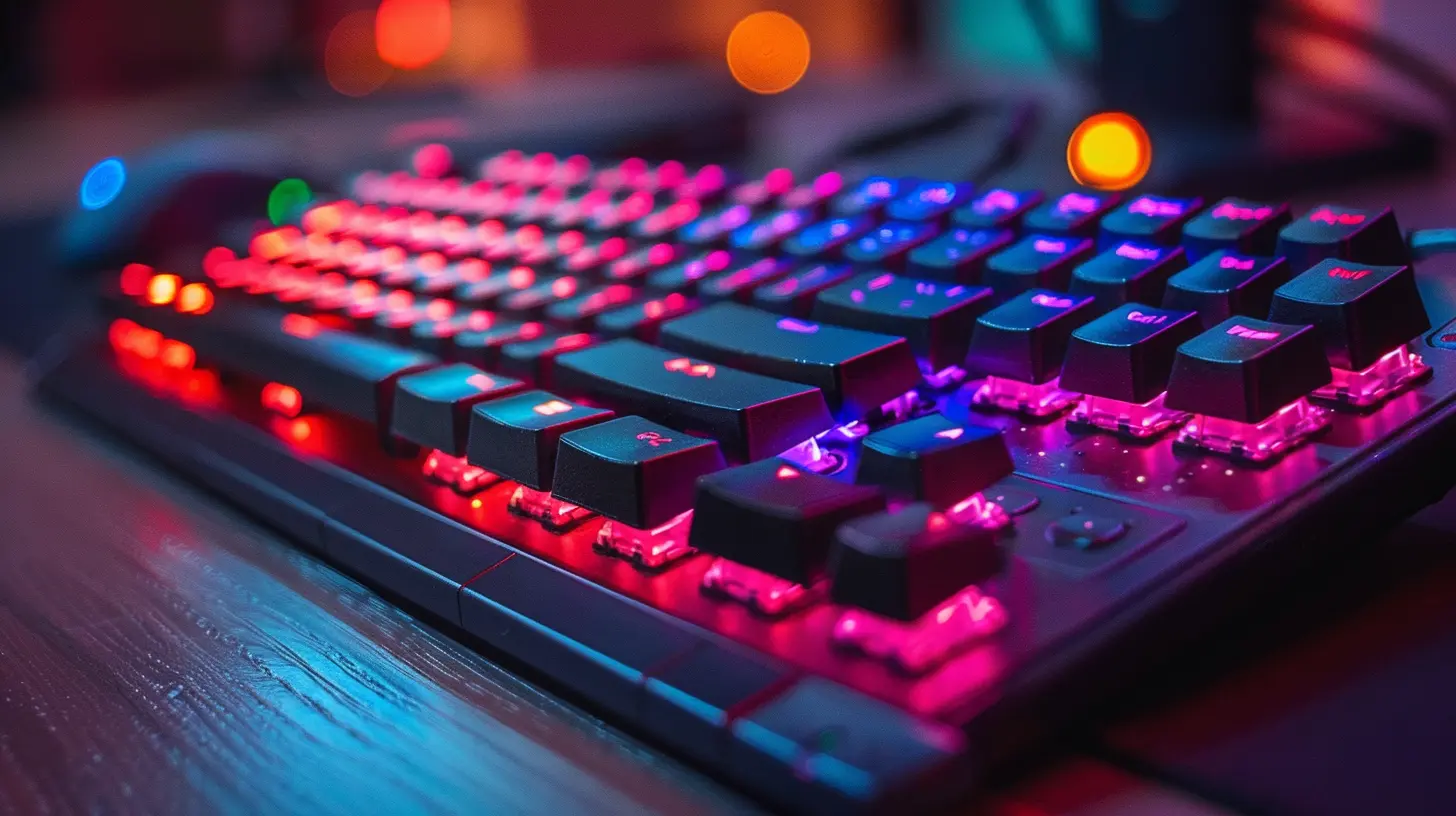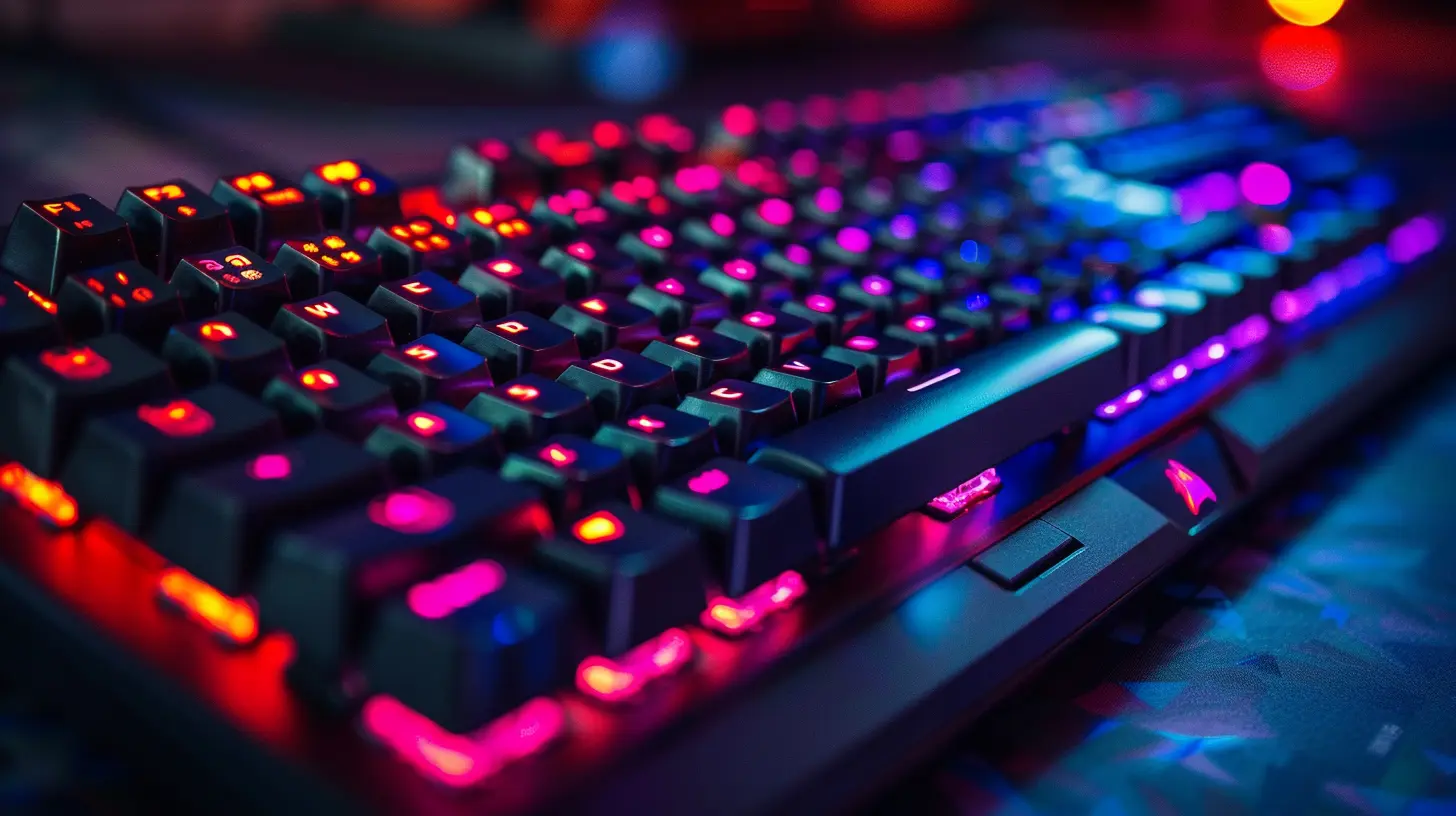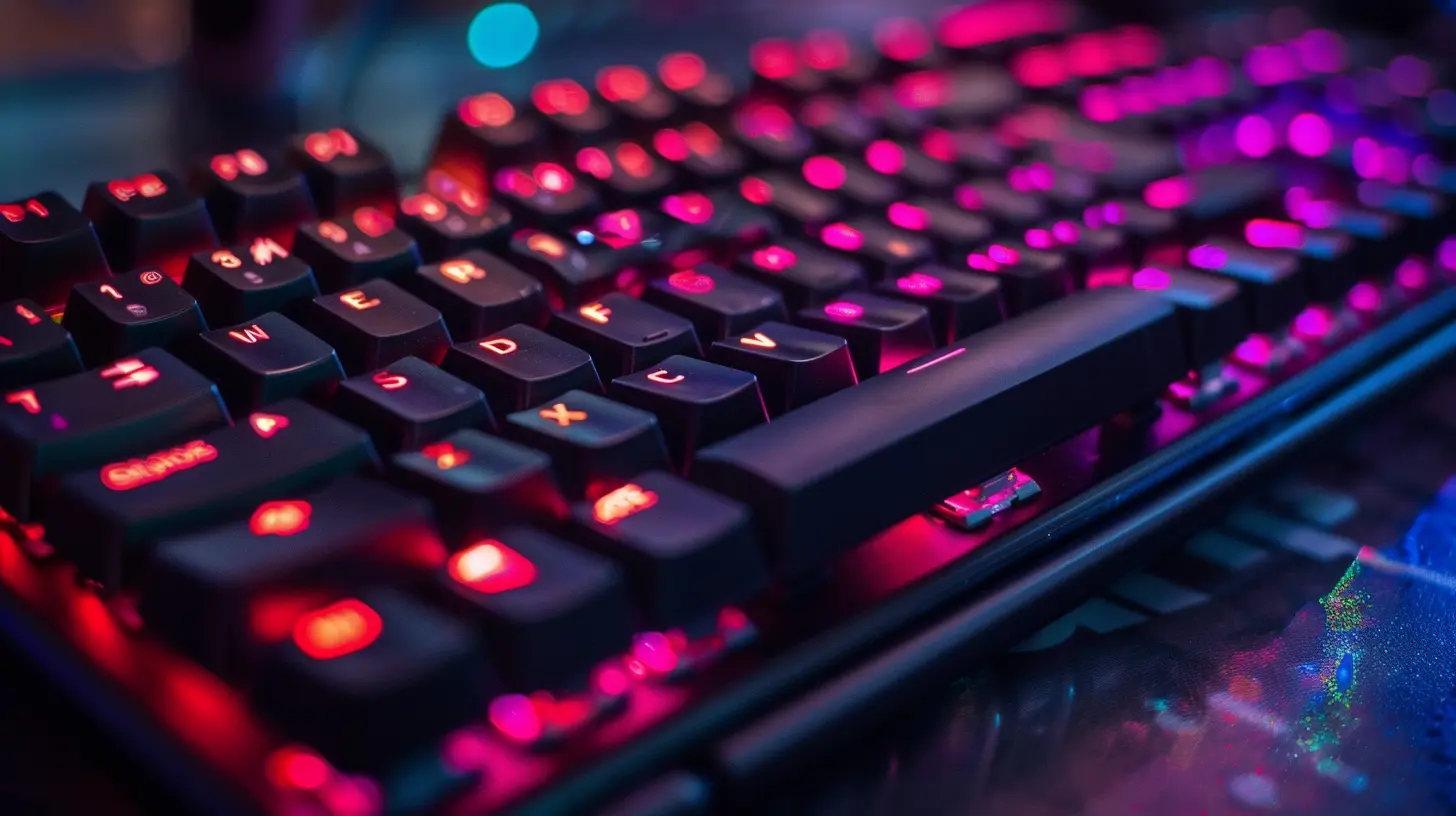Should You Build Your Own Gaming Keyboard?
10 August 2025
So, you’ve been gaming for a while now… and maybe you’re starting to feel like your current keyboard just isn’t cutting it anymore. You’ve seen sleek, custom builds online. You’ve heard the clickety-clack of high-end mechanical switches. And now you’re wondering, “Should I build my own gaming keyboard?”
Let's unpack that thought together. Whether you're a casual gamer, a competitive esports player, or just someone who loves tinkering, building your own gaming keyboard could be one of the most rewarding (and fun) decisions you could make. But like with anything worth doing, there are some ups and downs.
In this article, we’re diving deep into all things custom keyboards—what it takes, why it matters, and who it’s really for. And don’t worry, I’ll keep it real—no fluff, no hype. Just honest insight.

What's the Big Deal About Custom Keyboards?
Let’s start with the basics.When you build your own gaming keyboard, you’re customizing it to your exact preferences. Think of it like building your own lightsaber if you were a Jedi. You pick the parts: switches, keycaps, case, PCB, stabilizers… it's all up to you. It’s YOUR keyboard.
Compare that to buying a pre-built keyboard off the shelf. Sure, it works. But it might not feel “just right.” Maybe the switches are too loud, or the space bar feels mushy. When you're gaming for hours, those little annoyances start to add up.
Customization = Control
Building your own means full control. Want tactile switches for better feedback during those intense FPS moments? You got it. Prefer a compact 60% layout for faster movement and more mouse space? No problem. Even the RGB lighting can be dialed in to your liking.So, why settle for “close enough” when you can build your dream setup?

The Pros of Building Your Own Gaming Keyboard
Let’s get into the good stuff—the reasons why building your gaming keyboard might be the best move you ever make.1. Tailored Performance
When it comes to in-game performance, every millisecond counts, right? With a custom keyboard, you can optimize for response time, actuation force, and switch type. Want lightning-fast keystrokes for competitive play? Go linear with low travel. Prefer a bit of resistance to avoid accidental presses? Tactile switches got your back.2. Comfort That Fits Like a Glove
Stock keyboards are made for the masses. Custom ones? They’re made for you. You choose the height, layout, keycap profile, and more. That means less strain on your wrists, more comfort during marathon sessions, and ultimately, better focus on the game.3. Aesthetics That Match Your Vibe
Let’s be honest—looks matter. Especially when your gaming setup is your pride and joy. With a custom board, you can match your theme, your favorite colors, even your favorite anime. Whether it's clean and minimal or full-on RGB rave party, the choice is yours.4. A Fun and Fulfilling Project
Building a keyboard is like adult LEGO with a splash of engineering. It’s hands-on, creative, and honestly… super satisfying. The first time you complete a build and type on it? Chefs kiss.There’s something really empowering about using something you built yourself. And don't worry, it's not rocket science. If you can follow a YouTube tutorial, you can do this.
5. Long-Term Value
Yes, it might cost a bit more upfront. But custom keyboards are often built with higher-quality materials than mass-produced ones. That means they last longer, perform better, and retain their value in the aftermarket. So, in the long run, it's actually a smarter investment.
The Cons You Should Know Before You Dive In
Okay, let's not sugarcoat it—this isn’t always a walk in the park. So here are a few things to consider before jumping on the custom bandwagon.1. It Can Be Pricey
Let’s do some quick math. A decent case? Around $60-$100. Switches? Maybe $30-$50 depending on how fancy you get. Keycaps, PCB, stabilizers... it adds up fast. So yeah, this isn't the cheapest hobby out there.But if you're smart with your choices and patient with your buys (hello, group buys and sales), you can build something epic without breaking the bank.
2. Research Overload
There’s a bit of a learning curve. Words like “hotswap,” “plate-mount,” and “QMK firmware” might sound like gibberish at first. But give it time, watch a few guides, and it'll all start to click.If you enjoy learning new things (and geeking out just a little), this part can actually be pretty fun.
3. Availability and Waiting
Some parts might be out of stock. Others may take weeks (or even months) to ship, especially with group buys. If you're someone who wants instant gratification, this might be frustrating.4. Mistakes Can Happen
You might accidentally order the wrong size PCB, or maybe you mess up a solder job. It happens. The good news? The community is super helpful, and most mistakes are totally fixable. Just don't go in expecting perfection on Day 1.
Tools and Parts You’ll Need
Feeling ready to take the plunge? Here’s a basic rundown of what you’ll need:Essential Parts:
- PCB (printed circuit board) – The brain of your keyboard.- Switches – Choose based on feel and sound (linear, tactile, clicky).
- Keycaps – Plastic caps that go on top of your switches.
- Case – Housing that holds everything together.
- Stabilizers – Keep larger keys like space and enter stable and rattle-free.
- Plate (optional) – Adds rigidity and helps with switch alignment.
Tools:
- Switch puller and keycap puller- Soldering kit (unless going hot-swap)
- Lube and brushes (for smooth switch and stabilizer action)
- Screwdrivers and tweezers
Sounds like a lot? It can be. But again, think of it like building a PC. Once you dive in, it all starts to make more sense.
Hot-Swap vs Soldered Keyboards
Let’s clear one thing up here real quick. If the idea of soldering tiny wires freaks you out, you’ll want to look for a hot-swap PCB.Hot-swap means you can pop switches in and out without any soldering. It’s perfect for beginners and those who like to experiment with different switch types. Soldered boards are more customizable in the long run, but they do require a bit more effort and time.
So, for your first build? Go hot-swap.
Is It Worth It for Gaming Specifically?
Ah, the golden question.For casual gamers? Maybe not. A good off-the-shelf mechanical keyboard will serve you well.
But for serious gamers—or anyone who cares about speed, feel, and control—absolutely. In competitive gaming, fine-tuned equipment can make a genuine difference.
Imagine lining up that perfect headshot with a buttery smooth linear switch that activates the moment you think about clicking. That’s the kind of edge a custom build gives you.
Who Should Build Their Own Gaming Keyboard?
Let’s break it down.You should consider building your own keyboard if:
- You game regularly and want better performance.- You're picky about how your keyboard feels or sounds.
- You love tech or DIY projects.
- You want a keyboard that matches your personality and setup.
- You're willing to invest some money and time upfront.
Maybe skip it (for now) if:
- You’re on a tight budget.- You're looking for a simple plug-and-play experience.
- You don’t have time to research, shop, and tinker.
- You just started gaming and are still figuring out your preferences.
My Personal Take
I built my first custom gaming keyboard last year, and honestly? I’ll never go back to pre-built.It wasn’t perfect—I messed up a switch here and there, and I spent way too much time researching linear vs. tactile—but the final product is something I’m genuinely proud of. And every time I use it, whether I’m grinding in Apex Legends or typing out an article like this, it just feels right.
And trust me, once you feel that difference, there’s no un-feeling it.
So, Should You Build Your Own Gaming Keyboard?
Short answer? If you're even slightly curious, go for it.Yes, it costs more. Yes, it takes time. But the payoff in performance, comfort, and sheer satisfaction? Worth every second.
Start small if you need to. Buy a hot-swap kit, experiment with switches, and feel it out. The keyboard journey is a rabbit hole—but it’s a fun one.
If you're ready to level up not just your gear but your entire gaming experience, building your own keyboard might just be your next favorite hobby.
all images in this post were generated using AI tools
Category:
Gaming KeyboardsAuthor:

Whitman Adams
Discussion
rate this article
2 comments
Caelum Warren
Why settle for a factory-made snooze-fest? Building your own gaming keyboard is like customizing your ride—because who doesn't want to flex a little personal flair while dominating the game?
November 30, 2025 at 4:21 AM

Whitman Adams
Absolutely! Building your own keyboard not only enhances your gaming experience but also lets you express your unique style. Why not stand out while you play?
Patricia McCollum
Building your own gaming keyboard sounds intriguing! What unique features could enhance the gaming experience?
August 14, 2025 at 2:39 AM

Whitman Adams
Unique features could include customizable RGB lighting, programmable macro keys, and hot-swappable switches for easy personalization.


